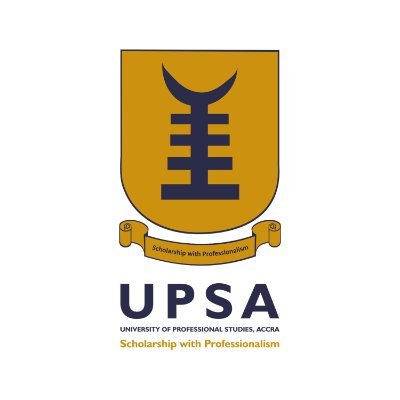UPSA Unveils UPSA-1000 Initiative to Shape Future Business Leaders

The University of Professional Studies, Accra (UPSA), through its Faculty of Management Studies, has officially launched the UPSA-1000 Project — an ambitious programme aimed at developing 1,000 dynamic and future-ready business leaders for Ghana and beyond.
The launch event, which took place at the Ohene Konadu Auditorium on Thursday, July 17, 2025, attracted a diverse audience, including university students, academics, industry leaders, and public sector officials. The gathering marked the beginning of a transformative leadership initiative designed to bridge the leadership gap within Ghana’s business landscape.
A Vision for Transformative Leadership
The UPSA-1000 Project is structured to identify high-potential students and emerging professionals and guide them through a comprehensive leadership journey. Participants will receive mentorship from seasoned professionals, exposure to real-world business environments, and training in personal development — all designed to equip them with the tools to lead ethically and effectively.
Speaking at the event, Professor John Kwaku Mensah Mawutor, Vice-Chancellor of UPSA, highlighted the urgent need to invest in youth leadership development.
“Young people must be nurtured by experienced mentors to evolve into the market leaders of tomorrow,” he said. “This initiative is a strategic response to the leadership deficit in Ghana’s business sector.”
Expanding Impact Beyond Campus
Dr. Ernest Mensah Abraham, Dean of the Faculty of Management Studies, outlined the framework and long-term vision of the programme. He noted that the UPSA-1000 initiative would be extended beyond UPSA’s student body to include qualified youth from the broader community.
“We are committed to being a leader in shaping Ghana’s professional landscape,” Dr. Abraham stated. “By opening this initiative to a wider audience, we hope to influence leadership development across the country.”
Government Endorsement and Encouragement
The event also saw the presence of the Minister of Youth and Sports, Hon. George Opare-Addo, who delivered a strong endorsement of the programme and praised UPSA’s commitment to empowering the next generation.
“Government is focused on creating sustainable employment through entrepreneurship,” the Minister said. “Initiatives like UPSA-1000 directly support national goals while promoting inclusive economic growth.”
Call for Corporate Support
Dr. Mrs. Juliana Akushika Andoh, a lecturer in the Faculty and a lead organiser of the UPSA-1000 Project, made a passionate appeal to the private sector and development agencies for partnership and sponsorship.
“We are calling on corporate Ghana and our development partners to join us in mentoring the pioneers of this leadership programme,” she said. “Your support in areas such as sponsorships, mentorship training, and leadership resource development will be critical in shaping a thriving entrepreneurial ecosystem.”
Programme Rollout and Participation
The inaugural UPSA-1000 cohort is expected to begin their training in the coming weeks, with the programme drawing on both academic faculty and experienced professionals across various sectors. The initiative will focus on ethics, innovation, and leadership as key pillars.
Prospective applicants — including students and young professionals — are encouraged to apply if they demonstrate a strong desire to lead, uphold ethical business practices, and create meaningful change in their communities.
The programme is also open to mentors and institutional partners interested in playing a role in Ghana’s leadership development journey.
Get Involved
To find out more about the UPSA-1000 Project, including application details, eligibility requirements, and partnership opportunities, interested parties should contact the Faculty of Management Studies at UPSA.
With this initiative, UPSA reaffirms its dedication to developing responsible, capable, and visionary business leaders who will contribute meaningfully to Ghana’s development and global competitiveness.





